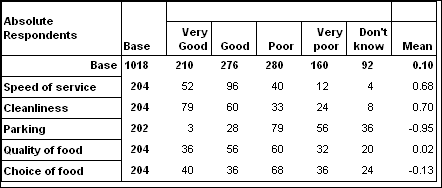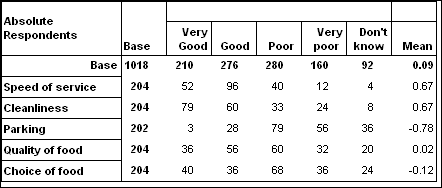When designing online surveys, take into consideration information accuracy
Some online survey questions yield more accurate results than others. Survey respondents can accurately answer straightforward demographic questions about their gender and age, however, when it comes to attitudes and opinions on a particular subject, some respondents may not produce a clear answer.
Attitude and opinion questions should be phrased in a way that best represents how survey respondents think and speak about a particular subject. In some cases, certain online survey questions need to be skipped when they do not apply to a respondent’s experiences or they are irrelevant to a respondent.
When developing a series of attitude and opinion questions, and some questions do not apply, it is necessary to include question options “not sure,” “do not know,” or “not applicable” in order to ensure there is no error in survey data. This is explained in the example of satisfaction survey questions below.
| Very good | Good | Poor | Very poor | Don’t know | |
| Speed of service | |||||
| Cleanliness | |||||
| Parking | |||||
| Quality of food | |||||
| Choice of food |
In conducting analysis for these satisfaction questions, you can display the mean scored values, and decide whether you want to include or exclude the “don’t know” responses.
“Don’t know” responses included
“Don’t know” responses excluded





